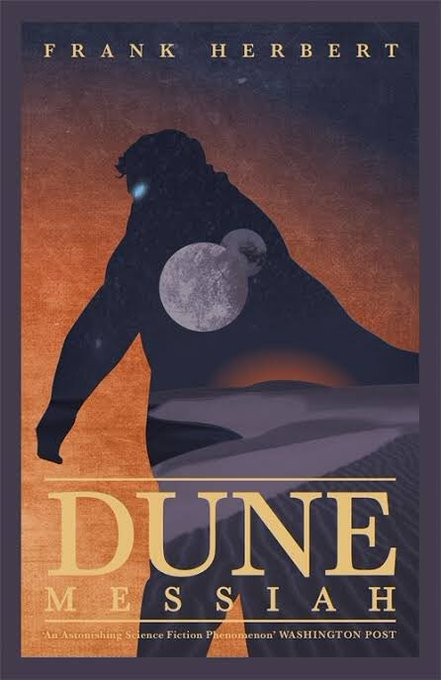The advantage Dune Messiah has over Dune is that it’s considerably shorter. There’s no need to introduce the world since that’s already been done in Dune, so Herbert can get right to it and tell the story. And it’s a good story, a tale about political intrigue, the uses and abuses of power, and the ways that leaders are flawed. Taken on its own merits, it’s an interesting and thought provoking science fiction narrative.
Where it falls down is in comparison to the book that came before it. It’s much smaller-scale than Dune, with fewer characters and arguably lower stakes. There’s more talking, and aside from a few notable scenes, a lot less action. After the epic scale and high drama of Dune, it’s hard not to feel a little short-changed.
But then, it would be practically impossible to write a sequel to Dune that didn’t disappoint in some way. What Dune Messiah does is attempt something different, which is what all sequels ought to do, and by and large it works. It gives the story of Paul Atreides a fitting end, while introducing a number of new characters and doing justice to the old ones. Enough is left unresolved to make the reader intrigued about what’s to come, while providing a satisfying conclusion to the story it’s telling.
I’m now cautiously optimistic about reading Children of Dune. Messiah has shown me that a sequel to Dune can work, and I’m curious about what happens in the next one. Maybe I’ll even go as far as Chapterhouse – who knows? Even if I don’t, I’m glad to have finished part of the story started in Dune. Denis Villeneuve, the director of the recent Dune film, has expressed an interest in adapting Messiah after completing part 2 of the first one. All I can say to that is, sign me up.
Review by Charlie Alcock

 RSS Feed
RSS Feed
